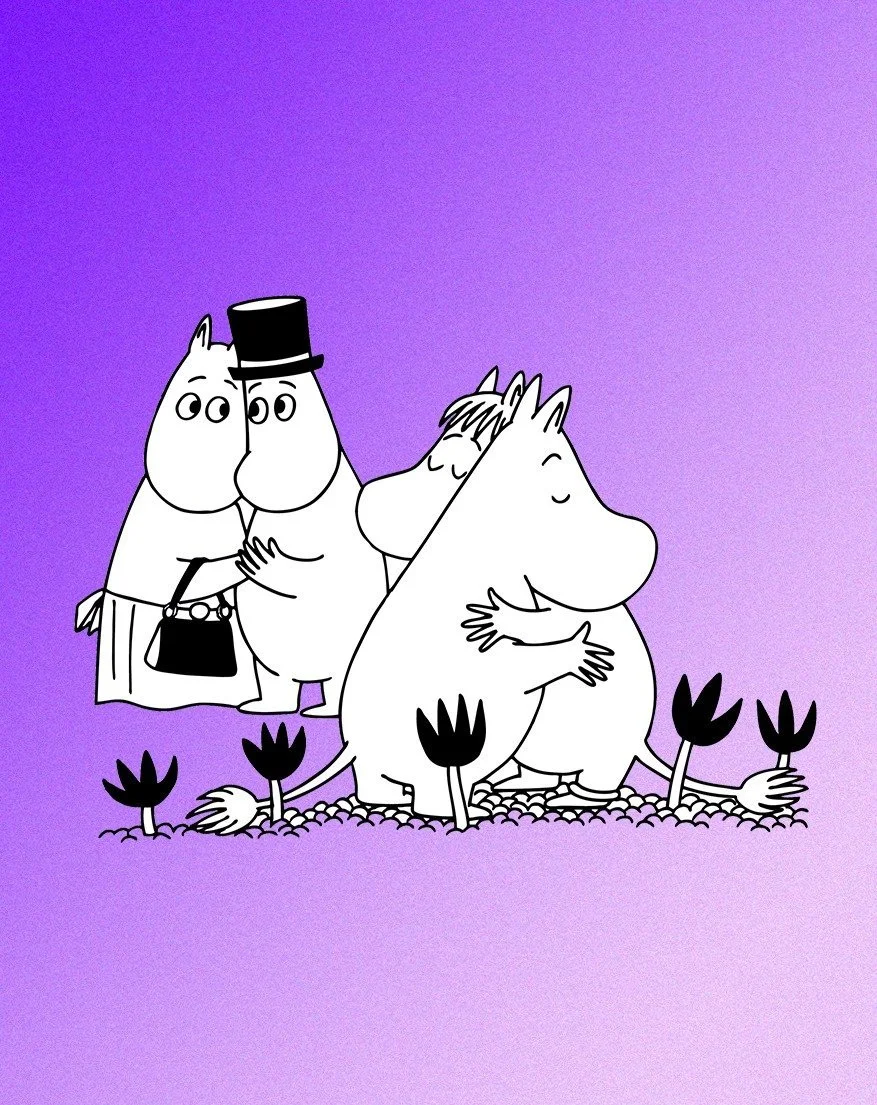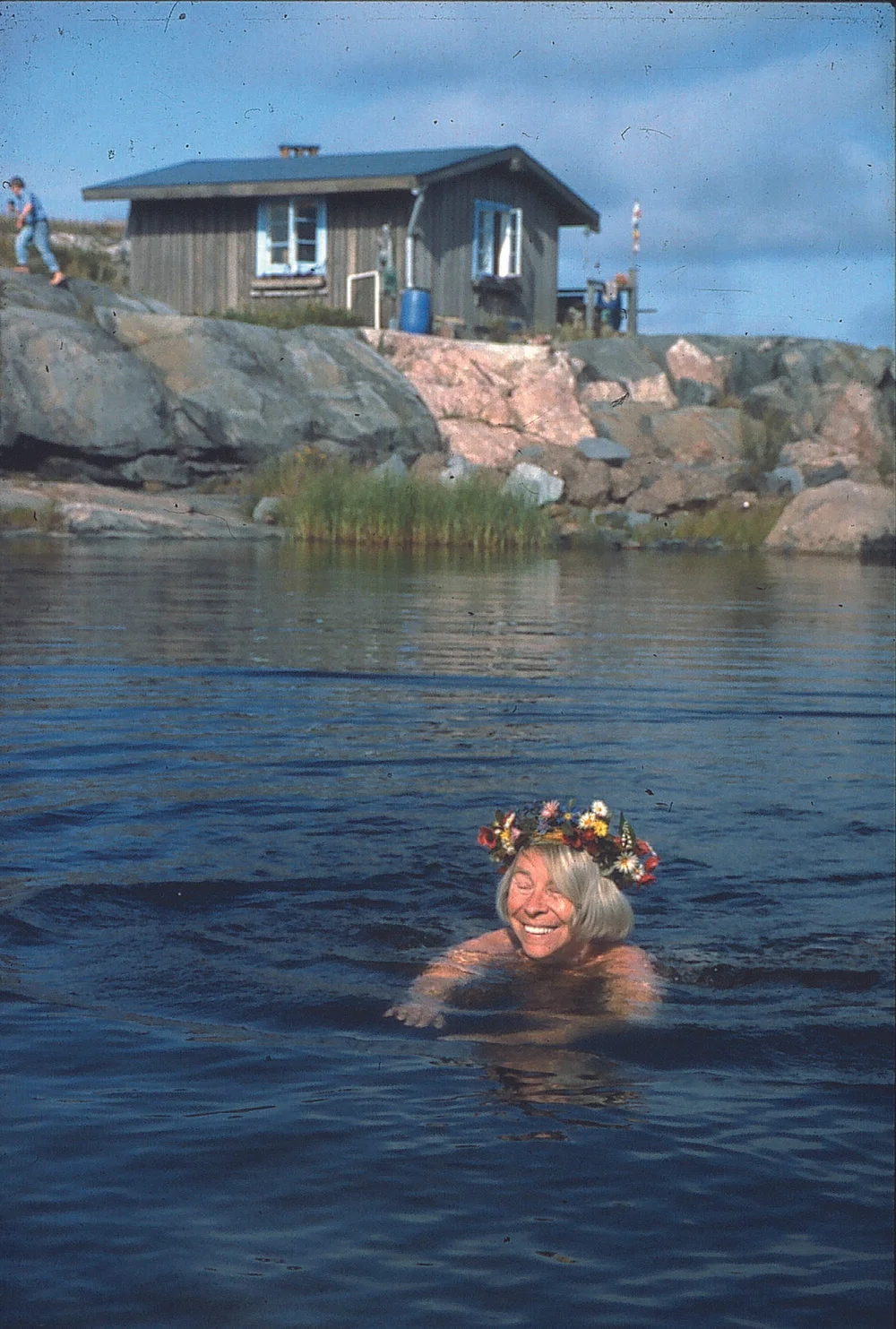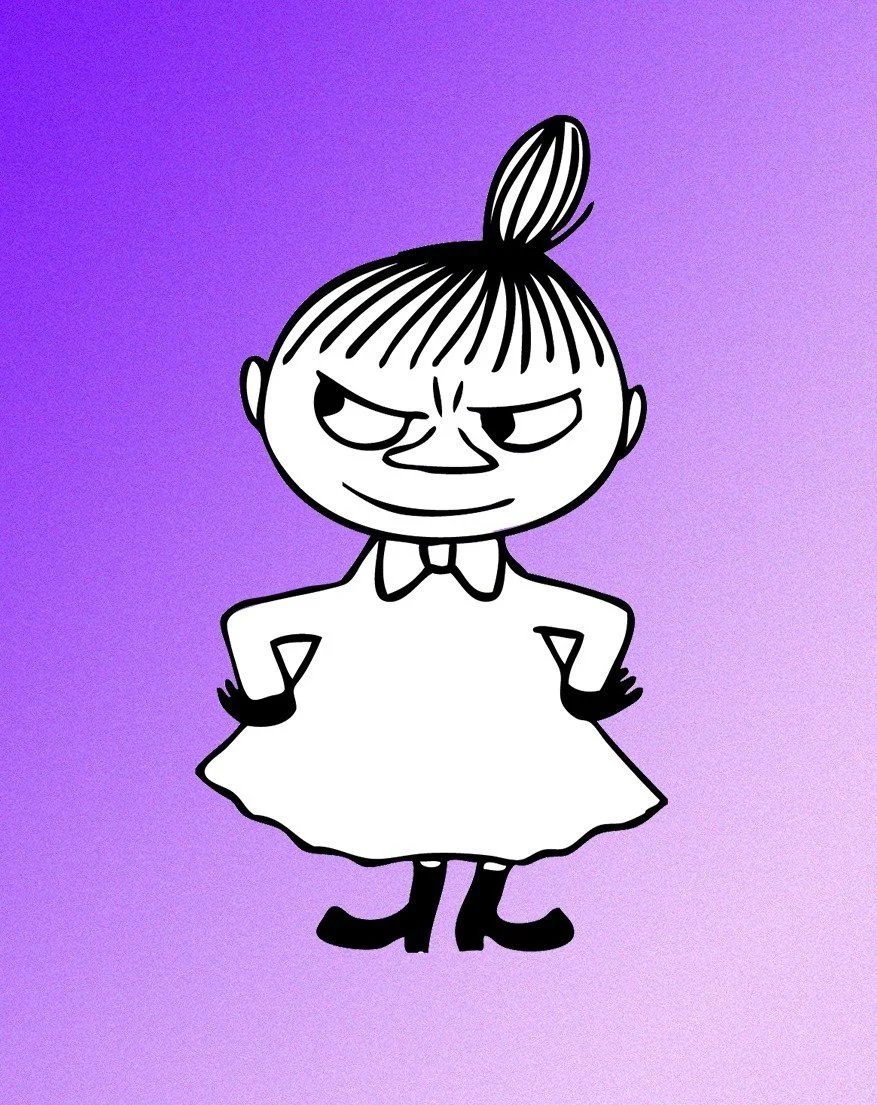Preserving the Queer Legacy of Moomins: In Conversation with Creative Director James Zambra
After outgrowing the stage of needing to feel mature and worldly, usually your late teens, it’s natural to slip back into the comforts of our childhood and enjoy them in a new light. From bimbocore touting kid’s Hello Kitty handbags from the charity shops, to amassing massive Jellycat collections after relegating the teddies of your youth into your mam’s attic, nostalgia hits heavy for all of us in one way or another. For many queer people, Moomins is a particular favourite to return to because on reflection, these creatures and their many castmates were the embodiment of queer living before we truly knew what that meant.
The Moomins themes of community and family are exemplar of the kind of lifestyles their creator, Tove Jansson, held dear. Darker moments within books like Moominland Midwinter, exploring loneliness and feeling excluded, provide comfort in the knowledge that these feelings are as natural a part of life as breathing. Whether purposefully or not, Tove, the Finnish, queer inventor of the Moomin universe, created a world that reflected her own and in turn, reflected positivities that make us all feel more at peace with our experiences.
Speaking with Polyester editor Gina Tonic, the creative director for Moomins (and great nephew to Tove) James Zambra discusses the past, present and future for the entire population of Moominvalley.
So it's been about a year since you took on the role of the Creative Director for Moomins. How was your 2022 in this position?
It's been great, a lot of fun. Very busy. The team at Moomin is really fantastic. It helps that I'm not completely new to the Moomins. Over the years I’ve worked on quite a few projects related to Moomins. We had a lot of artwork related projects last year, but also did a deep dive into our archives, unearthing treasures, looking at every little last scrap of paper that Tove ever doodled a Moomin troll on.
It’s all especially interesting for me as it's this treasure chest of all kinds of things related to Tove's life and our family in general. Luckily, she was really good at documenting things and preserving them for the future. So it's really nice to go through that material now and get to know her whole life's work.
___STEADY_PAYWALL___
Have you made it a priority as her great nephew to ensure that her personal relationship to the Moomin legacy is preserved?
The way the business works is really there's the Moomin business looking after the Moomin rights and working with licensees with the with the brand, but also this kind of legacy work relating to Tove's life in general: Moomins and the other work that she did as an artist.
In more recent years, the Moomins legacy has become celebrated as a queer one, due to Tove being a queer woman. How do you think that her queerness related to her work with the Moomins?
You can definitely see it in the Moomin stories to some degree. I mean, it depends on who's reading them, everybody finds different things. But in the Moomin stories all the characters are allowed to be exactly as they are; there are lots of peculiar, strange characters in Moominvalley and they are allowed to be so. The clearest queer reference is Thingumy and Bob, guarding their secret and speaking their own secret language, I suppose. Yet there are lots of small details: Dogs that prefer cats. gender roles are not always really clearly defined.
That’s definitely part of the global appeal, that there are so many parts to the Moomins that can be related to your personal experience. I feel like everyone has that when they interact with the Moomins, that they can see themselves in it.
Everybody in the stories are afforded space to be themselves and I think that really appeals to people. The fact that the stories are about all these strange creatures, very different personalities, very different outlooks on how to live and how to interact with others, with their own quirks or with their own kind of fears and flaws. I think everybody can identify with some character in Moominvalley or some character traits found in the stories. You need all these different characters to create a realistic mirror of what the world is like.
It’s funny how much realism can be found in these stories. In Moominland Midwinter, there is a much more melancholy tone. Why do you think it's important for children's characters to explore sombre parts of life?
Because life is not only happiness and joy. Life is full of all kinds of emotions. All important and important to write about. Sometimes you feel you feel on top of the world, and sometimes you feel the opposite, and everything in between. It’s really valuable for children to hear about characters going through things that might mirror what they're feeling, and to kind of help them understand their own feelings. If we only read about princes and princesses, it's not maybe all that relatable.
Do you think that’s why we revisit the Moomins as adults and still find comfort in it?
Moominland Midwinter especially is a great reread for adults: The world turned upside down, everything transformed, how the same world can look very different in the summer and in the winter. You can see that winter as a state of mind, you know, your own mood, something you're going through in life, I think you can always kind of find more meaning when you go back to the stories. Even now I re-read them all the time, and you always notice something new.
Tove apparently said that in Moominland Midwinter, the kind of cold foreign world that she described was really an allegory for the commercial side of the Moomin business that she had to manage. I think that did cause her a lot of anxiety and some kind of artistic crisis when the first big wave of kind of popularity came. It was really quite difficult for her to navigate.
I guess as a creative director then, do you kind of relate to that feeling of like, artistic integrity over commercialization? How do you prioritise the whimsy?
That's also something Tove said: Everything should be done with this sense of enthusiasm and play. That's really kind of where it all began, there were doodles on the side of the drawings as a signature, something she did for joy and for pleasure. It’s really important to keep that in the Moomins - the humour and fun.
What's the main message you want people to take away from interacting with the Moomins and Tove’s legacy?
The Moomin stories contain a lot of valuable ideas about how to live and what a good life is. A sort of Moomin philosophy of life that centers around kindness, acceptance and being true to yourself.
It’s so important to preserve Tove’s legacy alongside the Moomins. It doesn't matter how great the artist is, if you don't work with their legacy, they can be forgotten. I want people to remember Tove as very, very, modern for her time, as someone who was quite open about loving who she was with at the time, irrespective of if it was a man or a woman. Tove was before her time with her attitude to showing that openly - she was the first woman in Finland to bring her same sex partner to the Presidents Ball that we have on Independence Day. She was the first to bring her partner, as a queer person, along to that. She’s very inspiring.
Words: Gina Tonic
Moominland Midwinter is published in the UK by Sort of Books and Puffin.
Images © Moomin Characters™




